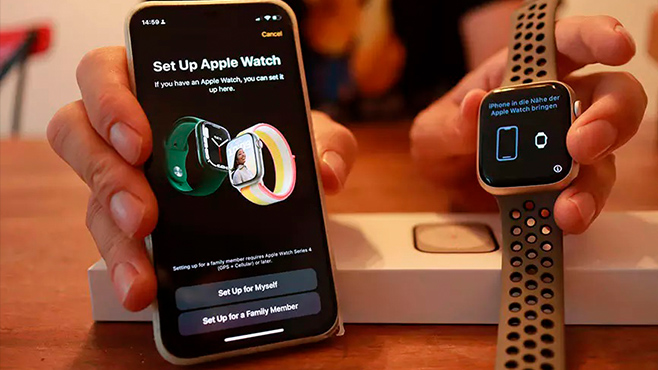How Apple Watch Uses and Protects Your Personal Data
As we continue to entrust more of our personal information to companies, Apple's commitment to privacy is becoming increasingly significant. When it first debuted, the Apple Watch was seen as another frivolous tech gadget for wealthy tech enthusiasts, but today, it is much closer to an accessory for everyday people.
Apple's strategy is often to introduce a product with premium features and gradually make it more accessible and affordable. The Apple Watch is no exception, and its popularity has been helped by its seamless integration with the iPhone, the most popular smartphone in North America and Europe.
As you use your Apple Watch, it collects various types of personal data, including health and fitness information, app usage, and location data. However, Apple is committed to protecting your privacy, and the data it collects is encrypted and stored securely. Apple also gives you control over which apps have access to your data and allows you to delete it at any time.
Overall, the Apple Watch is a powerful and useful tool, but it's important to be aware of the personal data it collects and how it is used. Apple's commitment to privacy is reassuring, but it's always a good idea to take a proactive approach to protecting your personal information.
What Apple Watch Tracks:
For most users, the main function of the Apple Watch is to track fitness, and the Fitness app is where you need to start. This app tracks how often you stand up, how much you move, and how many minutes of exercise you do. These three measurements are represented by three concentric rings, and the goal is to meet your goals for each.
In addition to these measurements, the Apple Watch tracks calories burned, exercise minutes, stand hours and minutes, distance walked, flights climbed, trends over time, menstrual cycle, ovulation prediction, irregular heart rate, sleep (on some models), and blood oxygen level (on some models).
You can also provide personal demographic information to your Apple Watch, including your first and last name, date of birth, sex, blood type, Fitzpatrick skin type, and whether or not you use a wheelchair. You can also list medications that may affect your heart rate.
Apple also uses Apple Watch data in their opt-in Apple Health Studies, which are done in collaboration with research institutions. To participate, users must download the Apple Research app, which then connects with the Apple Watch app. If you choose to participate, Apple will have slightly more information about your health, including your medical history, medications, family history, and health habits.
In addition to tracking fitness and health data, the Apple Watch can also function as an extension of your iPhone. Depending on the model you have, you can receive notifications for email, calendar events, stocks, weather, music, podcasts, calls, Apple Pay, maps, and texts. And, of course, it also tells time, because it's a watch.
Apple has been a vocal advocate for privacy, and their Apple Watch and associated apps reflect that stance. They refrain from tracking users over time or across third-party sites for targeted advertising and allow users to delete their data in most situations. They process as much data as possible on the device, rather than on their servers, and present their Privacy Policy in plain language. They only share user data if they are legally compelled to do so or if the user has given permission, such as for the Apple Health Study.
However, given the amount of personal information that users entrust to Apple through their devices, recent research into the data that the company actually collects has raised concerns among privacy advocates. Security researcher Tommy Mysk discovered something called a "dsId," or "Directory Services Identifier." This unique identifier is associated with each user's iCloud account, potentially allowing Apple to link all data associated with the user to their identity, even if they opt out of tracking.
While it's unclear whether this was an unintentional mistake or a sneaky way to bypass their own privacy policies, we're still hopeful that Apple will maintain their commitment to privacy. Nonetheless, we will be closely monitoring their actions in 2023. The data contained on an Apple Watch is incredibly intimate and personal, including information about the user's body and health, credit card information, emails, texts, calls, and location data.





